Getting a Car
When looking for a new car, you have three main options: buy used, buy new, or lease.
There are pros and cons to each method. Your choice will be based on various financial considerations, driving habits, and personal preference.
Used
Buying a used car is appealing to many people. Used cars are less expensive up-front, and they have the added benefit of not depreciating instantly (more on that later). Because you're buying a used car and saving sometimes up to 25-30%, you can usually afford to buy a higher class of car than you could if you bought it new.
If you do choose to buy a used car, there are some costs not typically associated with buying new. For example, you’ll want to have the car checked out by a trusted mechanic. You may need to do some maintenance work on the car much sooner than if you bought a new one. However, today’s cars are much more efficient and can go longer between scheduled maintenance visits than in years past.
Buying used also presents other financial benefits. Car insurance rates are often lower for used cars than new ones, and registry renewals are often cheaper. This can save you hundreds or more over the life of the car.
New
Buying a new car does have some advantages—and one major drawback.
First, the positives. You may be presented with more financing options and new-car incentives such as cash rebates and great interest rates when you buy new. While you are still likely to spend more than you would on a used car, you may spend much less than the first market price after negotiations, incentives, and rebates. There are also often benefits of buying from a new car dealer, such as service options or guarantees.
New cars offer peace of mind and ease of purchase. There is no need to take it to a mechanic before you buy, and if it breaks down, most warranties will cover the cost of repairs for the first few years of owning the car. These warranties are usually based on mileage or years, whichever comes first, so be aware of the terms and conditions.
While new cars are expensive, they do offer a lot of the newest tech features for performance, safety, and comfort. Used cars will likely be older and may not have the features you're looking for.
The major drawback to new cars, however, lies in depreciation. Depreciation is when something loses value over time. Everything depreciates, but new cars suffer a big hit almost instantly. Basically, the value of the car drops dramatically as soon as it leaves the lot. In many cases, it drops by as much as 20%! That means if you were to buy a new car for $25,000, it would be worth up to $5,000 less the moment it became yours.
Leasing
A third option, rather than buying used or buying new, is to lease a new car.
The biggest benefit to leasing rather than buying is that you can get more car for your dollar. When you lease, you don’t pay on the full purchase price of the car, rather, you pay on the depreciation of the car. This means if you lease a $25,000 car for 3 years, and the anticipated value of the car at the end of the 3 years is $15,000, you only make payments on that $10,000 difference. If you had purchased the car, you would make payments on $25,000.
If you do not have a lot of money for a downpayment on a car, leasing can also be a beneficial options. When buying a car, it is good to put down 10-20 percent of the purchase price. Leasing, however, is often available with no money down or as little as $1,000 down.
The main benefit of leasing is obvious: you get to drive a brand new car every few years! The drawback, however, is that the money you are spending isn’t investing in an asset, it’s simply spending money. Like renting instead of buying, you are not purchasing any equity in an asset you can later sell.
Other considerations are mileage fees and potential damage to the vehicle. If the car is damaged or you drive it over the mileage limit, you may end up with hefty fees.
Leasing often costs more than buying in the long run, as you’ll probably keep driving a purchased car for longer than a few years.
Financially, buying a reliable used car is typically the wisest option. However, buying or leasing a new car can have other benefits. Whichever you choose, be sure to budget wisely and leave room for unexpected repairs, maintenance, and other costs associated with operating a vehicle.
Learn More:
This article has been republished with permission. View the original article: Getting a Car.




Post your comment
Comments
No one has commented on this page yet.
RSS feed for comments on this page | RSS feed for all comments